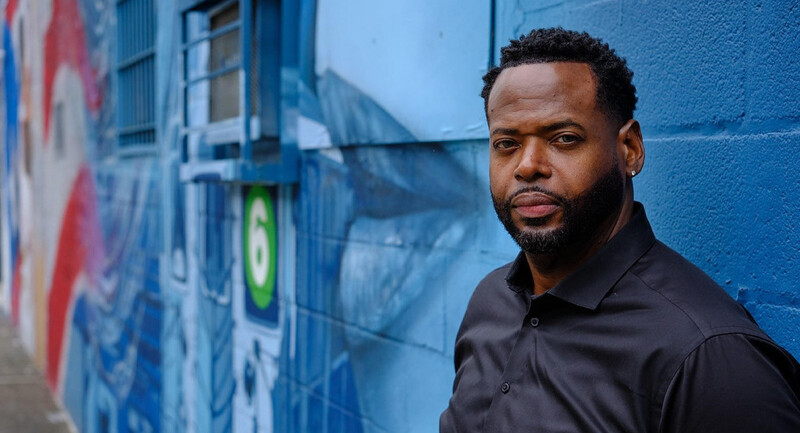Gretchen Oltman is an attorney, educator, and coauthor of the forthcoming ASCD book What is Your Leadership Story? A School Leader’s Guide to Aligning How You Lead with Who You Are. Oltman will be presenting at ASCD’s Annual Conference, happening this week, June 23-25, 2021. Plan to attend her session “I Am More Than My Title: Capturing Your Leadership Philosophy” (#2215) on June 24, from 1:20-2:00 p.m. ET. You can participate live during this virtual event or access all presentations on-demand through July 25. Register now.
What is the key to acquiring a leadership philosophy?
My coauthor, Vicki Bautista, and I teach students in graduate-level leadership programs [at Creighton University]. As students were preparing to graduate and continue with their professional lives, we noticed that they had a difficult time actually identifying their own leadership style, core values, mindset, and experiences that made them unique. Thus, we ventured out into the world to find a formula to help students write this philosophy—and there really wasn’t one, so we designed our own framework.
The Key:
Importantly, this framework has to be relevant for today’s professional world, where very few people spend time studying their own practices or paying attention to how and why others lead the way that they do. We are often a reactionary people, so Vicki and I tried to slow this process down a bit and provide an opportunity to really think about why we lead in the ways that we do.
The personal leadership philosophy (PLP) is a working document. Granted, it is meant to be shared, but as life goes on, a leader evolves and learns, so there is a natural evolution to one’s philosophy. The key is really taking the time to reflect on your own experiences so that you have a clear understanding and purpose behind your work.
How has your own real-life experience, particularly your background in law, influenced the decisions you’ve made and the leader you’ve become?
It was my experience in the classroom that led me to my pursuit of a law degree because I saw so many legal issues that were unique to teachers and schools. After I earned my law degree and passed the bar exam, I went back to high school teaching for nearly a decade. In that time, I really got to understand the ongoing nature of how the law and schools interact, including how important it is to retain quality teachers, to provide a safe learning environment, and to recognize the individuality of each student. As a leader, I try to approach things much like I do as a teacher—I’m willing to learn what I know I don’t know.
Being a leader is not about a title or position, but about how you handle the everyday challenges and opportunities that show up in life. My goal is to find meaning in each day—and I hope that my enthusiasm for that inspires others around me.
What can attendees expect from your session?
Our session is a chance for teachers and school leaders to do a bit of a self-study. In designing a personal leadership philosophy (PLP), we walk session attendees through a series of steps to identify traits that are unique to their leadership style and approach. In this, we encourage attendees to think about their entire lives as working adults—and how all of those different jobs, experiences, and people they’ve met along the way influence how and why they make the decisions they do today.
One important idea we embrace is that everyone is a leader—no matter what your title might be. So, regardless of your role in a school, you are making leadership decisions daily, from how to manage a student to how to communicate to a family to how to navigate keeping your students safe. We rely on every single person in our school to be leaders in their own capacity, so it is important that we understand why they lead the way that they do—and more importantly, to share this with others!
In your opinion, what is the most pressing issue facing school leaders today?
School leaders are struggling with well-being and self-care. Granted, the past year has been extra challenging in terms of the demands of the job, but overall, the demands on school leaders have been increasing incrementally over time. When a school leader is not able to stay well—mentally and physically—they lose passion for their work (which is a known natural result of burnout). So, we end up with school leaders who no longer have the one thing that brought them into the work in the first place—that zeal and love for what they do. We need to work on protecting this, allowing our school leaders to care for themselves and their families in healthy and productive ways as a norm, not an exception.
What is one book that has inspired you in your work (and why)?
Two classic books are readily on my mind—Mindset by Carol Dweck (Random House, 2006) and Burnout by Herb Freudenberger (Bantam Books, 1981). Dweck’s book has been instrumental in helping me understand how to embrace challenge and how to handle failure. I am a cautious risk-taker, so her work has challenged me to accept that trying and failing at something is better than never trying at all, so I try to keep that notion close at hand.
Freudenberger’s book is a pinnacle work on the concept of burnout. Even before the pandemic, my colleague and I spent a lot of time trying to help others understand why, after working hard and devoting oneself to a job or career for many years, that passion or drive seems to fade away. Then, mid- and late-career accomplished professionals start to feel aimless and wonder whether their life has been well-spent. Freudenberger coined the phrase “burnout” for just this reason—high achievers who are devoted to their work sacrifice so much that it leads to this loss of passion and zeal for what once drove them to work so hard. I fit the criteria for burnout—I am a natural high achiever and will work harder and harder year after year simply to achieve the next goal. Over time, though, this has been unsustainable, so I have had to find ways to balance my work and non-work life. It is truly a leadership issue that we need to work on as a society—one where leaders understand and allow time for themselves and their employees to focus on mental and physical well-being, find joy outside of work, and invest in others.








